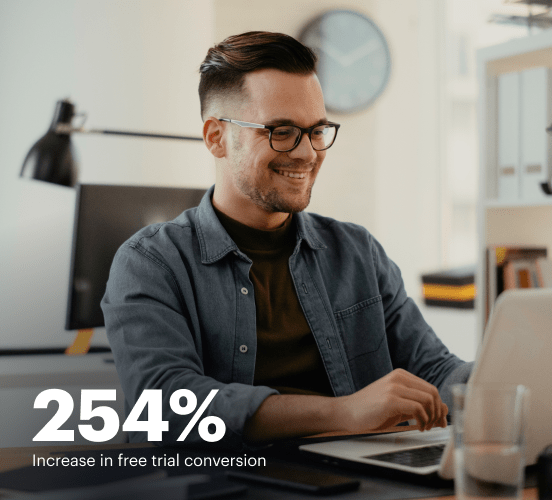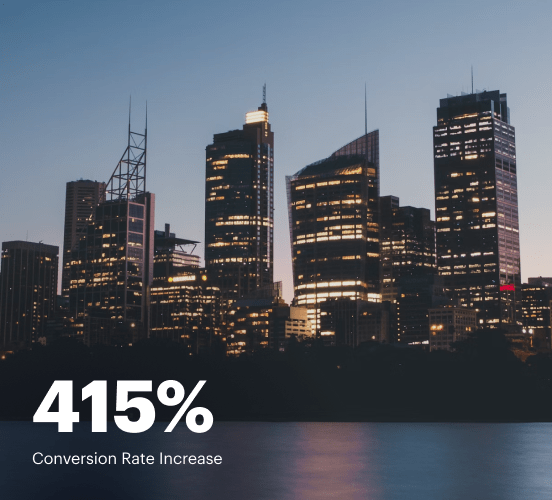How Wix vs. Microsoft Forms vs. Instapage stack up against each other
Compare Instapage with Wix and Microsoft Forms to create high-converting landing pages. With personalization, optimization, and collaboration tools, Instapage helps you deliver experiences that drive results.
Get startedSee how Instapage stacks up against the competition
| Feature | Instapage | Other builders |
| Drag-and-Drop Tools | ||
| Conversion-optimized templates | ||
| Manual and AI-powered A/B Tests | ||
| AI content suggestions | ||
| Popups and sticky bars | ||
| Canvas and grid blocks | ||
| Reusable and global elements | ||
| Form and popup builders | ||
| Built-in Heatmaps | ||
| Central analytics dashboard | ||
| Ad-to-page personalization and collections | ||
| Contacts, lists, and email | ||
| Dedicated, full-service CRO experts | ||
| Enterprise-ready platform |
Leading the way in building high-performing landing pages





Why Instapage is the smarter choice for your campaigns
Get everything you need to build, scale, and optimize high-converting landing pages—without coding.
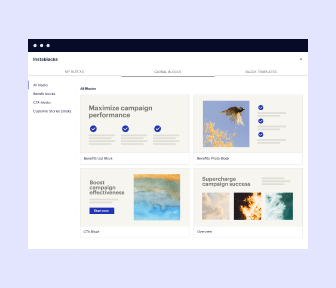
Easier page building without coding
Instapage offers a flexible and seamless page creation experience with a library of 500+ conversion-focused layouts, Instablocks®, a drag-and-drop builder, and AI content generation. With technologies like Thor Render Engine®, you can create on-brand, mobile-responsive landing pages that load quickly and start converting during initial visitor clicks.
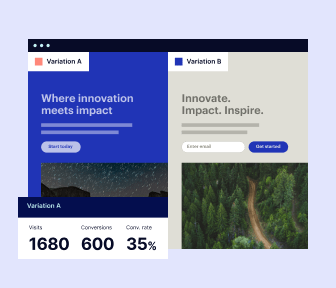
More insights — better results
Instapage lets you see in detail how each landing page experience and variation is performing so you can make targeted changes that boost page conversions. Use heatmaps for a better understanding of on-page activities, run A/B tests and AI-assisted experiments, and then track and evaluate results within robust analytics dashboards.
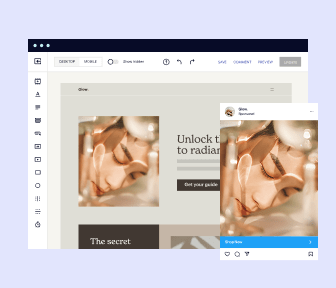
More personalized experiences
Instapage lets you quickly create high-performing landing pages tailored to each of your ad campaigns. Deliver personalized experiences for distinct audiences using dynamic text replacement. Effortlessly align specific advertisements to unique pages with AdMaps. Monitor audience-level metrics using our advanced data tools.
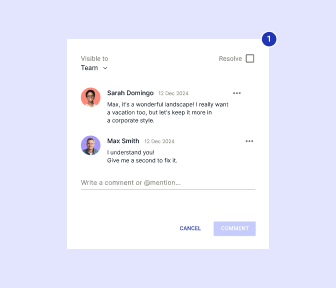
Built-in collaboration
Instapage collaboration capabilities bring your entire team together to speed up the process of landing page review, approval, and launch. No more frustrating and unnecessary revisions or edits scattered across emails. Provide instant feedback, conduct real-time page edits, and securely share your pages with outside stakeholders.
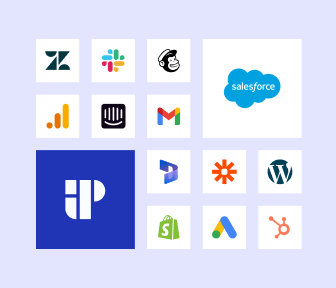
Free up time for your business
Invest time into business growth, not busy work. Launch landing pages faster with reusable forms and templates. Build once, reuse forever.
Explore all integrations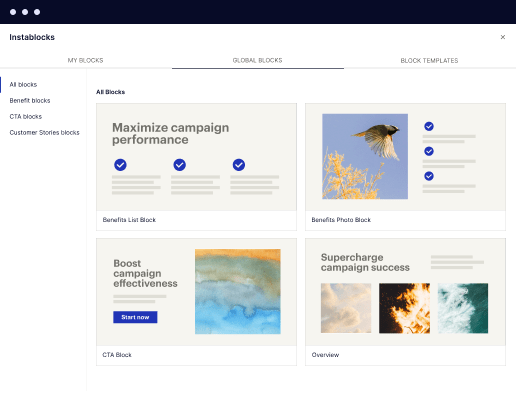
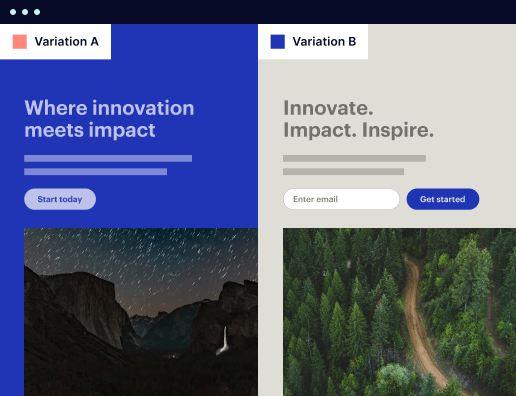
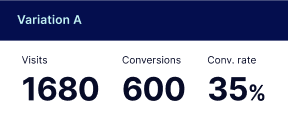
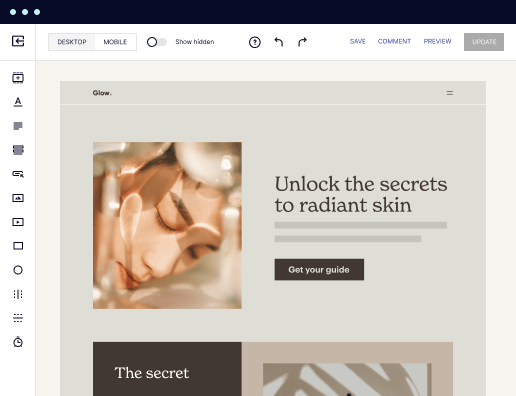

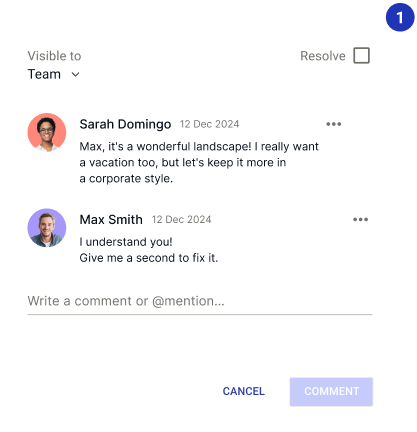
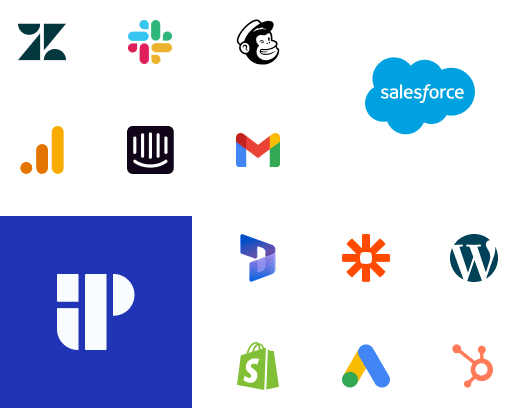
Easier page building without coding
Instapage offers a flexible and seamless page creation experience with a library of 500+ conversion-focused layouts, Instablocks®, a drag-and-drop builder, and AI content generation. With technologies like Thor Render Engine®, you can create on-brand, mobile-responsive landing pages that load quickly and start converting during initial visitor clicks.
More insights — better results
Instapage lets you see in detail how each landing page experience and variation is performing so you can make targeted changes that boost page conversions. Use heatmaps for a better understanding of on-page activities, run A/B tests and AI-assisted experiments, and then track and evaluate results within robust analytics dashboards.
More personalized experiences
Instapage lets you quickly create high-performing landing pages tailored to each of your ad campaigns. Deliver personalized experiences for distinct audiences using dynamic text replacement. Effortlessly align specific advertisements to unique pages with AdMaps. Monitor audience-level metrics using our advanced data tools.
Built-in collaboration
Instapage collaboration capabilities bring your entire team together to speed up the process of landing page review, approval, and launch. No more frustrating and unnecessary revisions or edits scattered across emails. Provide instant feedback, conduct real-time page edits, and securely share your pages with outside stakeholders.
Free up time for your business
Invest time into business growth, not busy work. Launch landing pages faster with reusable forms and templates. Build once, reuse forever.
Explore all integrationsGet started with Instapage in a few steps
-
Create your Instapage account
Start with Instapage by signing up via Google or your email. You'll get access to a free 14-day trial to discover Instapage capabilities. Feel free to cancel anytime during the 14-day trial if you decide that our product is not suitable for your business. -
Build and personalize your page
Create your first landing page from scratch or choose a template from 500+ customizable layouts. Use the drag-and-drop builder to add page elements, fonts, and backgrounds, refine content with AI, or add custom HTML, Javascript, and CSS. -
Review and make edits
Collaborate on page designs and streamline review processes. Invite your team members and stakeholders to review, edit, and provide feedback on your landing page. Collaborate knowing your page is confidential and only accessible to authorized users. -
Publish and track page performance
Publish your page to a domain or custom URL. Connect your pages to the ads you've created and track page performance within the analytics dashboard, run A/B tests and AI experiments, analyze results, and continuously optimize your landing page to maintain high conversions.
Instapage vs. Wix vs. Microsoft Forms – The Ultimate Showdown for Marketers
Selecting the right landing page builder can often feel like picking your favorite superhero; each has unique strengths and capabilities that appeal strongly to different missions in the digital realm. In this article, we set the stage for an epic showdown between three contenders—the seasoned warrior Instapage, the versatile Wix, and the dependable Microsoft Forms. Each of these platforms brings something unique to the table, and we'll explore their features, strengths, and weaknesses to help you determine which one deserves a spot in your marketing toolkit. With a blend of humor and insight, we promise you'll gain a comprehensive understanding of how Instapage empowers marketers to reduce costs, grow conversions, and deliver relevant landing page experiences that increase brand trust, customer loyalty, and conversion rates. Join us as we embark on this informative and engaging journey through the landing page universe.
Meet the Contenders – Additional Insights
Entering the ring are three fierce competitors, each vying for the title of the best landing page builder. First up, we have Instapage, known for its unparalleled customization and optimization capabilities, which are crucial for marketers keen on improving conversion rates. Next, Wix, a versatile website builder that allows users to create various types of websites, including landing pages, using a user-friendly drag-and-drop interface. Finally, Microsoft Forms enters with its simplistic yet functional approach, primarily focused on data collection through forms, but with capabilities for creating basic landing pages. Our contenders have devoted followings, constant updates, and innovative features to help users meet their marketing goals. As we progress through this article, each platform will undergo rigorous evaluation across several pivotal aspects, shedding light on their strengths and how they stack up against one another. Whether you are a small business owner, an experienced marketer, or anywhere in between, understanding the nuances of these platforms will guide you toward the best choice tailored to your needs.
Round One – Feature Breakdown
Comparing Template Variety and User-Friendliness
When it comes to landing page creation, the variety and ease of using templates take center stage. Wix shines through with its extensive library of templates that cater to various industries and aesthetic preferences, making it easy for users without much design experience to create visually appealing pages quickly. Users benefit from the drag-and-drop feature that allows for customization without technical expertise. Microsoft Forms, while not specifically known for advanced templates, does offer templates that make data collection simple and straightforward, albeit with limited design flair. On the other hand, Instapage stands out with its focus on high-converting templates designed expertly for SEO and user experience. Marketers can leverage these meticulously crafted designs to enhance engagement and optimize for conversion rates. Each platform has its uniqueness, but Instapage's strategic templates are crafted with a focus that resonates with marketers focused on results. This round illustrates how template variety and user-friendliness can dramatically influence a marketer's ability to create effective landing pages tailored to audience needs.
Instapage: Your Partner in Optimization
Instapage excels not only in providing a vast array of customizable landing page templates but also in its advanced features aimed at increasing conversion rates. The platform offers A/B testing capabilities that allow marketers to experiment with different versions of a landing page and determine which performs better based on user engagement and conversions. Coupled with pixel-perfect design flexibility, marketers can tailor pages to meet branding guidelines seamlessly. Instapage also provides robust analytics tools that give real-time insights into user behavior, enabling quick iterations and improvements. Furthermore, Instapage integrates effortlessly with various marketing tools and services, providing a holistic approach to campaign management. This unique combination of features positions Instapage not just as a landing page builder, but as a strategic partner who empowers marketers to reduce costs, grow conversions, and deliver relevant landing page experiences that increase brand trust, customer loyalty, and conversion rates, making it a top choice for those serious about optimizing their online presence.
Round Two – Speed and Performance
As we transition to our next round, let’s spotlight the vital role speed plays in delivering a seamless user experience. Imagine reaching your favorite coffee shop only to find a line that feels miles long; similarly, slow-loading pages can deter visitors before they even land on your offer. In today’s fast-paced digital environment, ensuring that your landing pages load swiftly can be a make-or-break factor in user retention and conversion. All three contenders have strategies for optimizing page speeds, but their approaches vary, and this round highlights how they handle this critical aspect of user experience.
Instapage Advantages:
- Instapage is known for lightweight, optimized page structures that load quickly.
- The platform uses advanced caching techniques to enhance performance under high traffic.
- Mobile-responsive designs ensure speed on both mobile and desktop devices.
- Instapage provides content delivery network (CDN) support, further optimizing load times.
Wix Advantages:
- Wix's infrastructure ensures fast hosting speeds for its websites.
- The drag-and-drop editor quickly sets up pages without compromising loading times.
- Automated optimization features help streamline content for improved performance.
Microsoft Forms Advantages:
- Microsoft Forms offers light-weight galleries for easy and fast rendering.
- The platform is robust enough for basic tools without heavy page elements.
- Integration with Microsoft services enhances speed through familiar infrastructure.
- Efficient design helps in quick data collection without additional resources.
When considering speed and performance, Instapage emerges as a top performer, primarily due to its focus on building optimized landing pages that meet user expectations. While Wix also offers speed advantages, especially with its hosting infrastructure, it primarily focuses on general website building. Microsoft Forms satisfies needs but lacks advanced features to elevate performance for landing pages. This round highlights the importance of speed in retaining visitor attention and maximizing conversions.
Round Three – Usability and Learning Curve
Addressing the usability and learning curve of these three platforms reveals how accessible they are for different user levels. Imagine walking into a friendly classroom where everyone, from beginners to seasoned pros, feels comfortable learning something new. Each of these platforms welcomes users with intuitive interfaces, but how they guide you through the learning process varies considerably. Wix stands out for its drag-and-drop functionality, making it easy for newcomers to build from scratch without prior coding experience. The platform is designed to assist users throughout their journey, and post-tutorial support aids learning. Microsoft Forms is similarly straightforward but focuses heavily on form creation, which limits users in the broader context of landing page design. Instapage, while incredibly powerful, does require a bit more time to master fully, given its advanced features, making it more appealing to marketers looking for a deeper understanding. Fortunately, its onboarding materials are thorough, and customers often find their way quickly into mastery. In this round, usability takes on a critical role, showcasing how the user experience shapes your journey from being a novice to an expert.
Round Four – Support and Resources
Each platform's customer support can be viewed as its trusty sidekick, ready to assist whenever users encounter challenges. Recognizing how each provides support can enhance the overall user experience significantly. Instapage delivers exceptional customer service through chat and email support, ensuring users can quickly reach out for assistance. Their extensive knowledge base, community forums, and dedicated tutorials help users navigate features effectively and capitalize on the platform's potential. Wix also excels in providing support through a plethora of resources, including an active community, tutorials, and a responsive customer service team. Microsoft Forms offers reliable email support and a knowledge base, but its offerings might not be as robust as Instapage or Wix. This comparison illustrates that while support channels vary across platforms, the commitment to providing help remains vital for users who seek to optimize their landing page strategies.
Final Round – Pricing and Plans
Pricing structures can greatly influence your choice when determining which platform aligns best with your goals. While Instapage offers a premium service with a focus on conversion optimization, it reflects its value through advanced features and performance. On the other hand, Wix provides flexible pricing options that cater to both budget-conscious users and those seeking higher-tier plans with broader functionalities. Microsoft Forms operates primarily in a straightforward pricing model through subscriptions tied to other Microsoft services, making it an affordable option for users. The outcomes of these pricing plans depend significantly on individual needs and feature sets that matter most. Ultimately, your decision comes down to understanding what you value most; whether that’s advanced capabilities, support, or budget-friendly solutions.
In conclusion, while all three platforms bring strengths to the table, the ultimate decision comes down to individual needs and objectives. Instapage shines in areas of customization, conversion rates, and marketing insights, making it particularly suited for serious marketers focused on delivering high-quality landing pages. Wix offers flexibility and ease of use for those looking to create stunning pages quickly. Meanwhile, Microsoft Forms remains a reliable tool within its niche, primarily suited for basic form-builder functions. As users assess their unique requirements, including desired features, support options, and pricing models, considering a trial, especially with Instapage, may be a great way to experience its capabilities firsthand. Make an informed choice by weighing the factors most important to you, and take the digital leap into the captivating world of landing page building.

